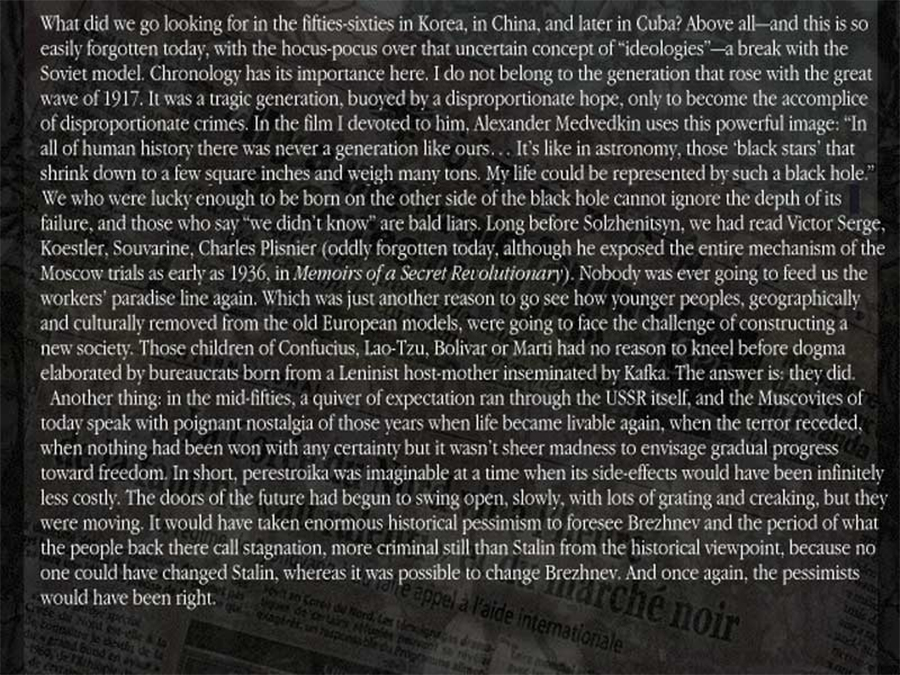COREENNES_KORTRIG STACK013 + Duplication

- Id : 1879
- Catégorie : PHOTO
- Séquence : Coréennes_Kortrig
- Card : COREENNES_KORTRIG STACK013 + Duplication
Navigation :
Médias :
No clipNo sound
Text :
What did we go looking for in the fifties-sixties in Korea, in China, and later in Cuba? Above all -and this is so
easily forgotten today, with the hocus-pocus over that uncertain concept of *ideologies"-a break with the
Soviet model. Chronology has its importance here. I do not belong to the generation that rose with the great
wave of 1917. It was a tragic generation, buoyed by a disproportionate hope, only to become the accomplice
of disproportionate crimes. In the film I devoted to him, Alexander Medvedkin uses this powerful image: *In
all of human history there was never a generation like ours... It's like in astronomy, those black stars that
shrink down to a few square inches and weigh many tons. My life could be represented br such a black hole.?"
We who were lucky enough to be born on the other side of the black hole cannot ignore the depth of its
failure, and those who say "we didn't know" are bald liars. Long before Solzhenitsyn, we had read Victor Serge,
Koestler, Souvarine, Charles Plisnier (oddly forgotten today, alchough he exposed the entire mechanism of the
Moscow trials as early as 1936, in Memoirs of a Secret Revolutionary. Nobody was ever going to feed us the
workers' paradise line again. Which was just another reason to go see how younger peoples, geographically
and culturally removed from the old European models, were going to face the challenge of constructing a
new society. Those children of Confucius, Lao-Tzu, Bolivar or Marti had no reason to kneel before dogma
elaborated by bureaucrats born from a Leninist host-mother inseminated by Kafka. The answer is: they did.
Another thing in the mid-fifties, a quiver of expectation ran through the USSR itself, and the Muscovites of
today speak with poignant nostalgia of those years when life became livable again, when the terror receded.
when nothing had been won with any certainty but it wasn't sheer madness to envisage gradual progress
toward freedom. In short, perestroika was imaginable at a time when its side-effects would have been infinitely
less costly. The doors of the future had begun to swing open, slowly, with lots of grating and creaking, but they
were moving. It would have taken enormous historical pessimism to foresee Brezhnev and the period of what
the people back there Call stagnation, more criminal still than Stalin from the historical viewpoint, because no
one could have changed Stalin, whereas it was possible to change Brezhnev. And once again, the pessimists
would have been right.